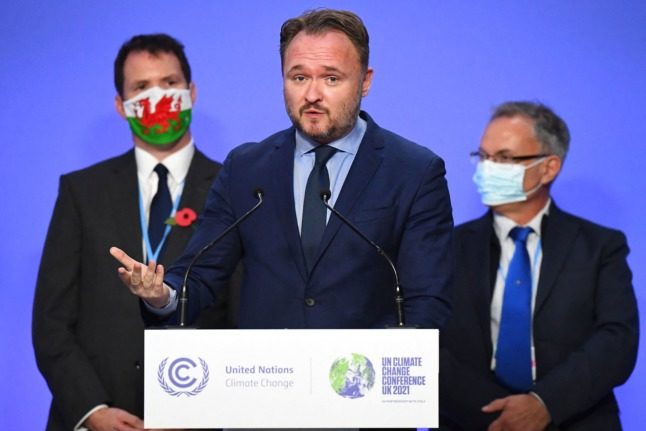“For the first time ever, coal and fossil fuel subsidies have been mentioned. I’m very, very happy about that,” he told Denmark’s Politiken newspaper. “But I am also very disappointed that the stronger formulations were removed at the last minute.”
Late on Saturday, the world’s countries agreed the Glasgow Climate Pact, after negotiations dragged on while governments haggled over phasing out coal.
Denmark is one of the countries leading the phase out of fossil fuels, formally launching the Beyond Oil and Gas Alliance (BOGA) with ten other countries and states at the Glasgow summit on Tuesday, announcing an end to oil exploration last December, and committing to phase out coal by 2030 back in 2017.
Jørgensen conceded that the deal struck on Saturday was nowhere near far-reaching enough to keep global temperature rises below 1.5C, which scientists have estimated is critical to limiting the impacts of climate change, but he said the decision to hold another summit in Egypt next year meant that this goal could still be reached.
“The big, good news is that we could have closed the door today. If we had followed the rules, we would only have had to update the climate plans in 2025, and the updates would only apply from 2030,” he said, adding that this would be too late. “Now we can fight on as early as next year. This is very rare under the auspices of the UN.”
Limiting temperature rises to 1.5C was still possible, he said.
“We have a chance. The framework is in place to make the right decisions. There was a risk that that framework would not be there.”
Jørgensen said that he had come close to tears when India launched a last-minute bid to water down the language when it came to coal, putting the entire deal at risk.
“It was all really about to fall to the ground,” he said. “The assessment was that either the Indians got that concession or there was no agreement.”
Sebastian Mernild, a climate researcher at the University of Southern Denmark, said he was disappointed by the lack of binding targets and global deadlines in the plan, but said it was nonetheless “a step in the right direction”, particularly the requirement that signatories to the Paris Agreement must tighten their 2030 emissions reduction targets by the end of 2022.
“It’s good that this thing with fossil fuels has got in,” he added. “It’s a pity that you don’t have to phase them out, but only reduce.”
He said the test of whether the Glasgow meeting is a success or failure would not come until the various aspects of the plan are approved and implemented by members states.



 Please whitelist us to continue reading.
Please whitelist us to continue reading.
Member comments